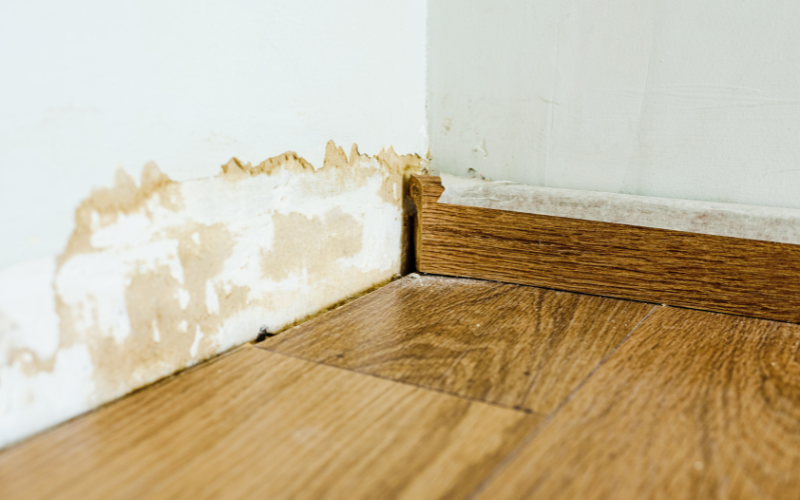
Water damage can be a stressful and overwhelming experience, but understanding how to handle the insurance process can make a significant difference in how quickly and effectively you recover. Whether you’re a homeowner or renter, knowing what your insurance covers and how to file a successful claim is key to minimizing financial loss.
In this guide, we’ll cover:
✅ Does homeowners insurance cover water damage?
✅ Does renters insurance cover water damage?
✅ Tips for filing a successful water damage insurance claim
Water Damage: A Common and Costly Issue
Water damage is one of the most frequent and expensive home insurance claims. According to the Insurance Information Institute (III):
- 1 in 60 insured homes files a property damage claim caused by water damage or freezing each year (source).
- The average insurance payout for water damage and freezing claims is $13,954 (source).
- 98% of basements in the U.S. will experience some form of water damage during their lifespan (source).
Given these statistics, knowing how to handle an insurance claim properly is crucial for protecting your home and finances.
Does Homeowners Insurance Cover Water Damage?
In most cases, homeowners insurance does cover water damage, but there are some important exceptions. Generally, your policy will protect against sudden and accidental water damage, such as:
- Burst pipes
- Overflowing appliances (e.g., washing machines, dishwashers)
- Roof leaks due to storms
However, homeowners insurance does not cover damage caused by:
- Flooding from natural disasters (this requires separate flood insurance)
- Gradual leaks due to poor maintenance
- Sewer backups (unless you have a special rider for this)
According to the Insurance Information Institute, water damage accounts for nearly 29% of all homeowners insurance claims, making it one of the most common claims homeowners file (source).
👉 Tip: If you’re unsure what your policy covers, review your policy documents or call your insurance provider before disaster strikes.
Does Renters Insurance Cover Water Damage?
Renters insurance does cover water damage, but like homeowners insurance, coverage depends on the cause of the damage. In most cases, renters insurance will cover damage to your personal belongings if the water damage is sudden and accidental, such as:
- A pipe bursting in the apartment
- Water damage from an upstairs neighbor’s overflowing tub
However, renters insurance does not cover:
- Damage to the building itself (this is the landlord’s responsibility)
- Flood damage (a separate flood insurance policy is needed)
- Damage caused by negligence (e.g., leaving a faucet running)
💡 Key takeaway: If you rent, check with your landlord about their insurance policy and consider purchasing separate flood insurance if you live in a high-risk area.
Water Damage Insurance Claim Tips: Get the Compensation You Deserve
Filing an insurance claim after water damage can be overwhelming. Here are some expert water damage insurance claim tips to ensure you receive the coverage you’re entitled to:
1. Act Fast & Document Everything
- Take photos and videos of all damaged areas and belongings.
- Keep receipts for any temporary repairs or hotel stays if your home is unlivable.
- Don’t throw anything away until an adjuster assesses the damage.
2. Prevent Further Damage
Insurance companies expect policyholders to take reasonable steps to prevent further damage. This may include:
✔ Shutting off the main water supply
✔ Drying out affected areas
✔ Covering holes in the roof with a tarp
Failing to do so could lead to claim denial.
3. Contact Your Insurance Provider Immediately
- Report the damage as soon as possible.
- Ask about policy coverage, deductibles, and next steps.
- Request an adjuster visit to assess the damage.
4. Keep a Record of All Communication
- Log all calls, emails, and letters exchanged with your insurance company.
- Note dates, times, and names of representatives you speak with.
5. Work with a Water Damage Restoration Professional
Many insurance companies prefer working with certified water damage restoration companies. Water damage professionals like Code 3 can:
- Provide detailed damage assessments
- Help prevent mold growth
- Assist with the claims process
6. Consider Hiring a Public Adjuster
If your claim is denied or underpaid, a public adjuster can negotiate with your insurance provider to maximize your payout.
Final Thoughts: Be Prepared Before Disaster Strikes
Dealing with insurance after water damage doesn’t have to be a nightmare. Understanding your policy, acting quickly, and documenting everything can make the process smoother and more successful.
If you’re facing water damage in Northern Colorado, Code 3 can help. Our team specializes in fast, professional water damage restoration and works directly with insurance companies to ensure you get the coverage you deserve.
Contact us today for 24/7 emergency water damage restoration services!
